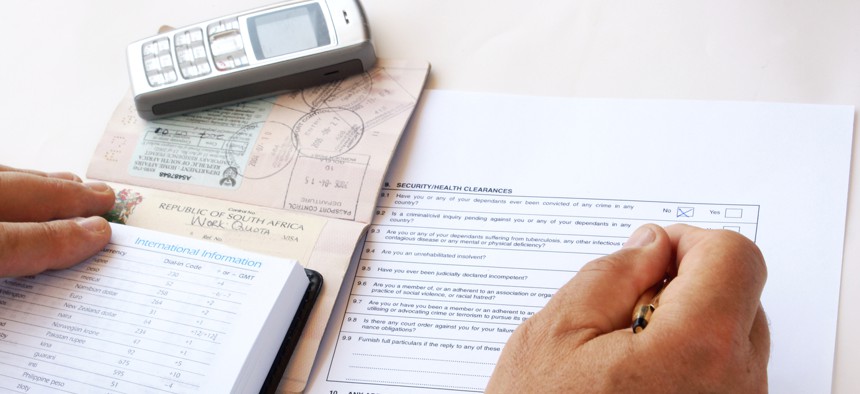
Shutterstock.com
Joining the Biden Administration? Read This Before You Apply for a Clearance
The five things you need to do before submitting your SF-86 security clearance application.
A security clearance is a determination by the United States Government that a person is eligible for access to classified information. To obtain one—and virtually all senior positions require one—you must complete a Standard Form 86 (SF-86) Questionnaire. This 136-page document (also known as the e-QIP) forms the basis for the government’s background investigations, reinvestigations, and continuous evaluations of anyone under consideration for obtaining or retaining a national security position. The information demanded of an applicant is considerable—where you have lived and traveled, your education and employment history, any ties to foreign nationals and governments, criminal records, drug and alcohol use, and any relevant psychological conditions and much more.
Your SF-86 Questionnaire will be checked and reviewed very carefully. If your paperwork is accurate and complete, and there are no red flags, your investigative case should move quickly through the system. However, if your paperwork is inaccurate or incomplete, you create extra work for the analysts and reviewers, investigators and adjudicators, and your case may drag on. What’s more, the investigators get a glimpse of what type of person you are just by looking at how you filled out your SF-86.
There are five imperatives to consider before submitting your SF-86:
Be honest. It should go without saying that anyone applying to access highly protected national security information—which, if improperly disclosed, could cause “exceptionally grave damage to the nation”—must show that they live by the highest ethical standards in all aspects of their lives. Lying or omissions on the SF-86 will almost automatically disqualify you. Always, always, always tell the truth (even when it hurts).
Be accurate. The SF-86 is exhaustingly long and thorough, containing questions and sub-questions that delve into minute details of your life. If you are not sure when you took that trip to France, but you know it was in either 2018 or 2019 (lucky you, right before the COVID-19 pandemic), do not just guess. Take time to research your own past to ensure all information on your SF-86 is accurate.
Take your time and read the question. Different sections of the SF-86 ask for information from different timeframes, and some federal agencies include an addendum requesting additional information. Just because you have submitted an SF-86 for one agency does not mean you can mindlessly complete the SF-86 from another agency. Make sure you carefully read and understand the scope of each question every time you are asked to complete the SF-86.
Be complete. In your rush to complete the application (I get; it is a tedious process, but the U.S. government won’t be sympathetic) don’t leave things out. You can’t include almost all your foreign travel, but forget that one trip to Tijuana, Mexico. Or list almost all your foreign contacts, but forget the two Russian foreign nationals who play on your weekly soccer team (in pre-pandemic times, of course). Or disclose every occasion where you smoked marijuana, but forget the one time you also tried your roommate’s Adderall. At worst, these mistakes will make you look like you are lying. At best, they make you look careless. Judgment is a critical component of security clearance determinations, and you must convince the government that you can be counted on to reliably safeguard the nation’s secrets.
Explain. Everyone has a past. Most people have lived a full life before accepting a position that requires a security clearance: Maybe you got into trouble with the law in high school, made some poor decisions (that prostitute you solicited?), or had a bad credit history that you have since overcome. You did the right thing by being honest, accurate, and complete on the form, but you also need to explain what happened and how you have changed. The passage of time helps a lot, but you should also include important milestones or other accomplishments that distance you from the person you were when you engaged in the prior bad behavior. Take advantage of opportunities in the SF-86 that invite you to provide additional information and explain any problems in your background.
In short, if you follow the above rules and do it right the first time, you will make the security clearance application process much easier and less stressful, and you will likely get your clearance much sooner.
Nina Ren is an associate with the federal employment law firm of Kalijarvi, Chuzi, Newman & Fitch, P.C. in Washington, D.C. She is Co-Chair of the firm’s Security Clearance Law Practice, representing federal employees and contractors whose clearances have been threatened or suspended, or whose suitability for federal employment has been challenged. She can be reached at nren@kcnlaw.com.






